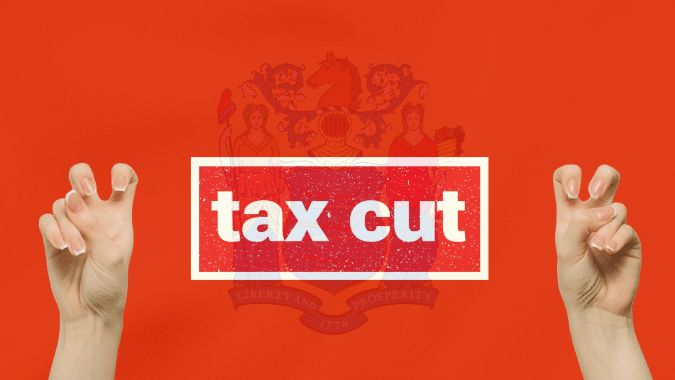In testimony before the Senate Budget Committee today, NJBIA Chief Government Affairs Officer Christopher Emigholz said the proposed FY2024 State Budget represents the beginning “of a down payment toward greater economic competitiveness,” but also must do more to bring much-needed relief for small businesses.
“That first step toward competitiveness is most embodied by Governor Murphy’s decision to allow the temporary corporation business tax (CBT) surtax to sunset at the end of 2023, as it is scheduled per current law, and not propose any new taxes or fees,” Emigholz said. “We implore you, our State Legislature, to maintain both provisions in this state budget that you are beginning to review today.”
In support of the sunset of the 2.5% CBT surtax, Emigholz noted that New Jersey could go from the highest CBT to the fourth highest in the nation.
“Meanwhile, we know that decades of academic research has shown how taxes on corporate income are ultimately passed on to workers in the form of lower wages,” Emigholz said.
“It is not about whether some large successful companies can afford to pay the highest tax in the nation. It is about the massive number of jobs those employers provide and the impact on competitiveness from having the highest CBT in the nation and what it means for those jobs.”
Other positives in the proposed FY24 budget highlighted by Emigholz include:
- CBT reform legislation that will provide GILTI (foreign income) tax relief
- No new taxes or fees directly included in the budget
- Pro-growth spending in workforce development, infrastructure and innovation
- Third straight 100% pension payment and largest in state history at $7.1 billion
- An additional $2.35 billion deposit in the Debt Defeasance and Prevention Fund
Emigholz acknowledged the different points of view on the $10 billion ending surplus in the proposed budget.
“Proponents will say this level of surplus is responsible to prepare for a possible economic downturn amidst national and global economic uncertainty, but critics will point out that it represents taxes that were unnecessarily collected and now not being used,” Emigholz said.
“The answer probably lies somewhere in the middle. Granted, a bigger cushion will be helpful to avoid tax increases and spending cuts if there is an economic downtown coming up, but $10 billion may be oversized.”
Despite the positives in the budget, Emigholz said there is “not nearly enough proposed tax relief for small businesses.”
He proposed unemployment insurance payroll tax relief and property tax relief for small businesses through the ANCHOR program.
On July 1, UI payroll taxes for businesses will increase more than $300 million – the third increase of an overall $1 billion increase to replenish the state’s UI fund which was depleted after businesses were forced to shut down during the pandemic.
“Further concerning is the fact that we are one of the minority of states that did not use federal relief funds to replenish the state’s UI trust fund,” Emigholz said. “Additionally, as of March 9, just five states, including New Jersey, still have advance authorizations from the federal government to support their state unemployment trust fund. This shows our state is not out of the UI woods yet.”
The FY24 budget proposes another $2 billion for the ANCHOR property tax relief program, but it specifically excludes businesses.
“That is tough to understand when businesses pay about half of the property taxes in New Jersey, which are the highest in the nation, and property taxes represent the largest tax paid by business taxpayers,” Emigholz said. “NJBIA requests an expansion of ANCHOR to include small businesses and manufacturers and looks forward to working with the Legislature to make this happen.”
To see Emigholz’s full written budget testimony, click here.

